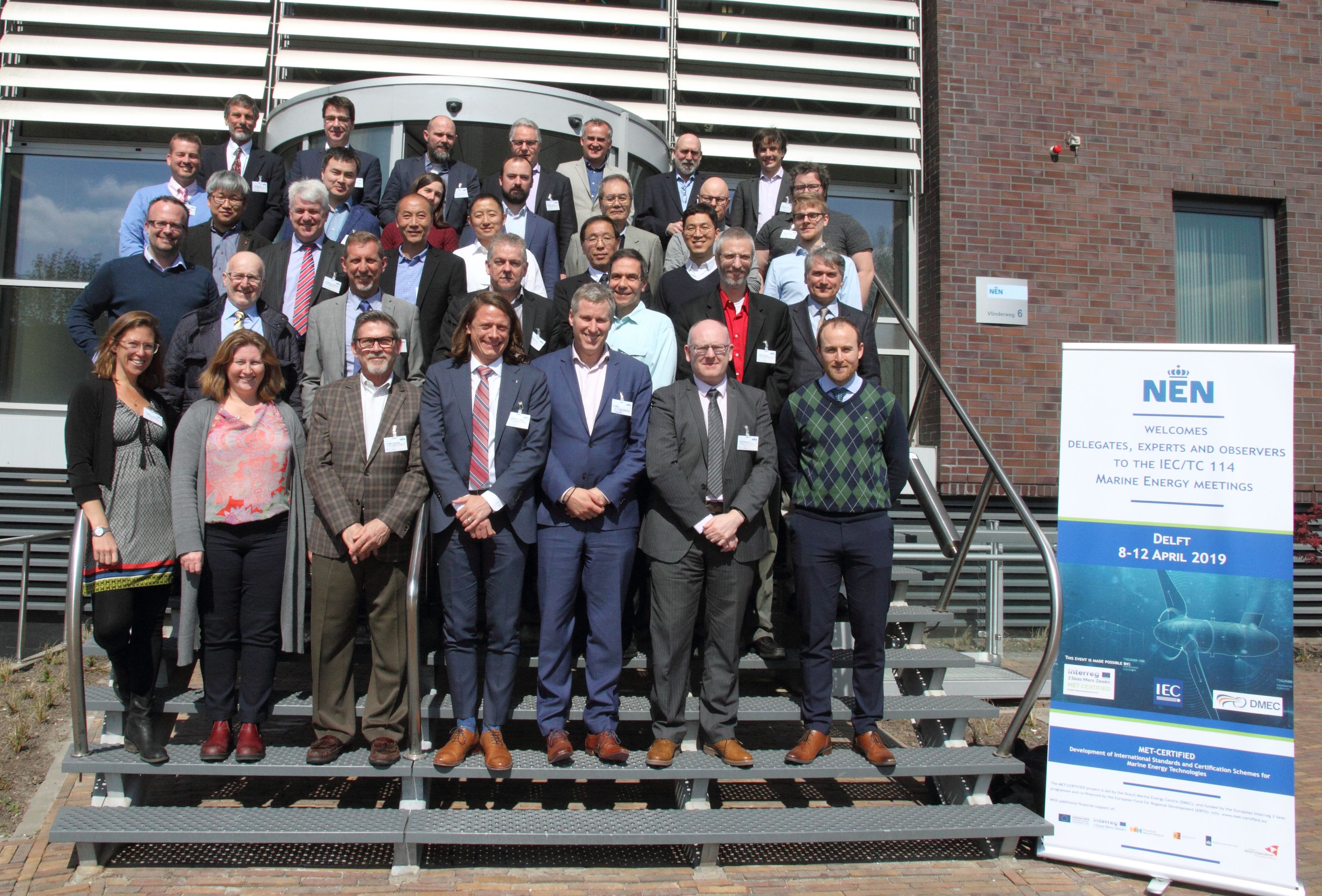Marine Renewable Energy Standards Development – Supporting Canadian Priorities within IEC TC 114
Strategic Area
Renewables
Status
Complete
Fund
Energy Innovation Program
Year
2018
EIP Contribution
$ 83,800
Project Total
$ 315,200
Location
Halifax, NS and across Canada
Find out more
Lead Proponent
Marine Renewables Canada
Project Objectives
Canada has world-class tidal, river current, and wave energy resources. Intl standards accelerate safe, reliable, & economical domestic and international deployment of clean tech systems to generate power from these resources. The Canadian clean tech sector has a vested interest in the development and adoption of industrial standards applicable to marine renewable energy. The development of international standards for the marine renewable energy industry is overseen by the International Electrotechnical Commission’s Technical Committee 114 (IEC TC 114). To ensure that Canada’s input and needs are considered, the Standards Council of Canada formed a Mirror Committee to IEC TC 114 (SMC/IEC TC 114) in 2007. The Committee is a volunteer group of over 30 technical experts from industry, academia, and federal & provincial governments. IEC TC 114 develops standards for tidal, wave, and river resource assessments, device and mooring design, and energy converter performance evaluation. Marine Renewables Canada was awarded $83K for the project “Marine Renewable Energy Standards Development – Supporting Canadian Priorities within IEC TC 114” to develop six IEC TC114 standards.
Results
The IEC/TC114 Committee was able to develop a total of 17 International Standard during the project timeline which exceeds the original objective of the project. The target publication date for these standards was late 2020 or early 2021, which has been achieved. Canadian participation throughout the development process was critical to ensuring Canada’s ability to influence the content of these documents.
The Canadian National Shadow Committee was also able to complete two additional research projects that allowed for the use of TS 62600-2 (Design requirements for marine energy converters) and TS 62600-10 (Assessment of mooring system for marine energy converters (MECs)). The purpose of this research was to ensure safety at test centers, by having an independent third-party review of the tidal energy technology and their project construction plans before construction can begin in the test center area based on the requirements of IEC standards.

A group photo of many of the SMC TC114 members & other country members that were at a plenary
The foundation of standards for marine renewable energy has reached a pivot point and with most of the standards now published as first or second edition technical standards, a good basis has been developed for this new and growing industry. Many additional second edition standards are well on their way for publication. The Task Force established to review and update the existing TC-114 Strategic Business Plan Description (SBP) has completed the update to the SBP, and comments have been received from the IEC/TC114 committee member Countries and addressed. One of the main changes was to review and update the standards based on the United Nations Sustainability Goals.
Benefits to Canada
No industry thrives without a foundation of standards. The foundation of standards for marine renewable energy has reached a pivotal point. The direct and indirect impacts to the UN sustainability development goals have a direct positive effect on Canada and Canadians.
Next Steps
It is imperative that the work of the TC114 Canadian Mirror Committee continue and expand to include the development of the IECRE Certification process in Canada. Furthermore, a significant number of demonstration projects involving a single marine energy converter have occurred or are underway. The next major step is deployment and testing of arrays, and may stimulate the need for new standards.
Page details
- Date modified: